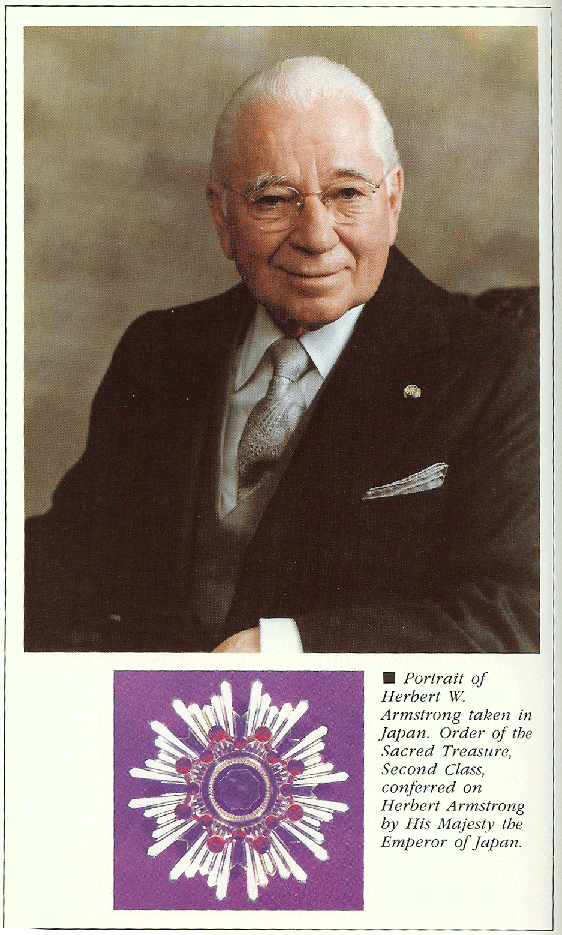PCG Reports on HWA’s Final Handling of Finances

In the November issue of PCG’s Philadelphia Trumpet is another excerpt from S. Flurry’s book Raising the Ruins:
Herbert W. Armstrong prepared his last will and testament on Jan. 12, 1986—four days before he died. Knowing he was near death, his first directive was that Herman Hoeh officiate the funeral “without pomp and undue ceremony.”
In his second directive, he bequeathed all his property of “every kind and nature” to the Worldwide Church of God. Think about that. He had been pastor general of that church for more than 50 years. And though it started pitifully small, at the time of his death, the church’s annual income was $164 million. As founder and pastor general of the Worldwide Church of God, Herbert W. Armstrong could have amassed a personal fortune by the time he died. As it was, the house he died in belonged to the church. The plane he traveled in belonged to the church. The cars he commuted in belonged to the church. And what he actually did own at the time of his death—even though he had three living children—he left to the church.
Had he been in it for the extravagant opulence that Tkach Jr. accused him of, can you imagine what kind of retirement package he could have set up for himself after 30 or 40 years as pastor general? Yet, he served God and tirelessly worked right up until the day he died. And at his death, every material possession he owned went right back to the church.
In his will, he explained that he chose not to leave his descendants anything—not because of any ill will toward them—but because he believed they had “adequate means of their own” and because leaving what he had to the church would ensure that it “be put to more permanent and beneficial use for many people.”
That about sums up Herbert W. Armstrong’s legacy.
Even on his deathbed, his final wish was for everything he owned to go toward the work so that “many people” might benefit.
Mr. Armstrong put God’s Family and God’s work first. And as difficult as that might be to grasp, looking at it humanly, isn’t that what we should expect from a man of God? Jesus Christ, after all, said, “He that loveth father or mother more than me is not worthy of me.” That’s what Jesus taught—and lived.
Wouldn’t you expect Jesus Christ to put God’s Family and God’s work first? “I must work the works of him that sent me, while it is day: the night cometh, when no man can work,” Christ said. It wasn’t an option for Him—He had to work. He never considered retirement. He kept right on working until the day mankind murdered Him for putting God first.
Putting God and His work first is the basic theme of the Bible.
Herbert W. Armstrong put this principle—this law—into action. He gave and gave and gave and gave. Then he died—exhausted from the heavy load God had laid on his shoulders. But God brought him back to life—and though he would have rather died or at least retired, he kept right on giving for another 81/2 years! His lifelong work of service and sacrifice for the good of others proved, as our Savior promised it would, that it truly is more blessed to give than to receive.
S. Flurry’s book is more popular than I first thought as I saw two copies of it for sale at the local Barnes & Nobles bookstore.
Two articles of related interest to HWA would include:
Who Was Herbert W. Armstrong? How is He Viewed Today? Includes quotes from the 1973 edition of The Autobiography of Herbert W. Armstrong and explains how he is and should be viewed today.
15 Accusations and Truthful Responses About Herbert W. Armstrong He, even after his death, keeps being improperly maligned–here is the truth on these matters.
 |
Tweet |
|